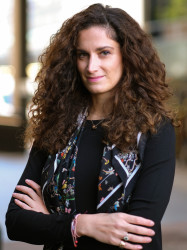Summary
My lab focuses on the adaptation of Industry 4.0 principles in (bio-) pharmaceutical processes. We work on the development of digital twins and control methodologies for process understanding, optimisation and automation.
I welcome applications from excellent and enthusiastic students from all over the world! Feel free to get in touch to learn about possible vacancies.
*Not a scientist? Read the summary below*
Welcome to our lab! We utilise expert knowledge and real-world data to develop digital twins used for process simulation, optimisation and control.
What is a digital twin? We define digital twins as computer modelling platforms that are based on mathematical equations able to mimic the interactions and phenomena taking place in a physical/biological system or equipment.
Why are digital twins useful? Digital twins are useful as they enable us to test the system of interest by conducting numerous experiments on the computer. This helps us do things faster and more in a cost-efficient manner. We also use digital twins to identify the conditions (optimal conditions) under which the system is able to demonstrate its best performance (optimal profile). We then use these profiles as targets for the design of smart controllers to ensure that the optimal conditions are always maintained.
How do we interact with experimental researchers and industrial partners? Our lab works very closely with experimental researchers and industrial partners who provide us with expert knowledge and data. Real world data are fundamental for the validation of the digital twins! In return, we develop tools that enable experimental researchers to get continuous snapshots of the process state even when analytical measurements are not available. Our tools can also guide the design of targeted experiments, thus minimising time, cost and labour.
Research Themes
- Bioprocess modelling
- Process control
- Supply chain optimisation
- Computer modelling for disease understanding
Please visit our website for more information: papathanlab.com
REPORTS & MEDIA
Our lab has been working on the development of tools and strategies to ramp up manufacturing and supply chain distribution capacity of COVID-19 vaccines. You can read an overview here.
You can also access the DELVE report on SARS-CoV-2 vaccine development and implementation here.
Dr. Papathanasiou is also featuring at Episode 9 of the Podcast series from the Institute for Molecular Science and Engineering, "Never Lick the Spoon", discussing on-going COVID-19 research as well as mental health. You can listen to the episode here.
NEWS
JuLY 2021
- Congratulations to Foteini Michalopoulou for successfully defending her Diploma Thesis at the School of Chemical Engineering, NTUA.
- Congratulations to Miriam Sarkis & Steven Sachio for passing their Early Stage exams! The first milestone towards a successful PhD!
- Welcome to Kelvin Choo who will be doing his UROP in our lab working on techno-economic analysis of viral vector manufacturing.
June 2021
Welcome to Nicholas Lau who will be doing his IROP in our lab in collaboration with the Sikes Lab at MIT. Nicholas will be studying reaction-diffusion models in cancer.
NOVEMBER 2020
Welcome to Foteini Michalopoulou who joined our lab as an exchange student from NTUA to work on hybrid modelling and design space optimisation in downstream separation processes. The project is carried out in collaboration with Prof. A. Kokossis.
October 2020
Welcome to our newly recruited PhD students Ms. Miriam Sarkis and Mr. Steven Sachio!
DR. PAPATHANASIOU'S BIOGRAPHY
| Date | Role |
|---|---|
| 2020- current |
Lecturer (Assistant Professor), Principal Investigator of the Life Sciences and Process Systems Engineering (LifeSciPSE) Group |
| 2017-2020 | PostDoctoral Research Associate, Centre for Process Systems Engineering, Imperial College London, London, UK |
| 2015-2016 | Visiting Research Scholar, Energy Institute, Texas A&M University |
| 2012-2017 | PhD in Chemical Engineering, Centre for Process Systems Engineering, Imperial College London, London, UK |
| 2011-2012 | MSc in Advanced Chemical Engineering, Imperial College London, London, UK |
| 2010 | 6-month Diploma Thesis [ERASMUS Program], “Impact of High Pressure Treatment on the Available Glucose Content of Various Starch Types”, Technical University of Berlin, Berlin, Germany |
| 2005-2010 | 5-year Chemical Engineering Diploma, National Technical University of Athens, Athens, Greece |
Selected Publications
Journal Articles
Papathanasiou MM, Steinebach F, Morbidelli M, et al., 2017, Intelligent, model-based control towards the intensification of downstream processes, Computers & Chemical Engineering, Vol:105, ISSN:0098-1354, Pages:173-184
Papathanasiou MM, Quiroga-Campano AL, Steinebach F, et al., 2017, Advanced Model-Based Control Strategies for the Intensification of Upstream and Downstream Processing in mAb Production, Biotechnology Progress, Vol:33, ISSN:8756-7938, Pages:966-988
Papathanasiou MM, Avraamidou S, Oberdieck R, et al., 2016, Advanced control strategies for the multicolumn countercurrent solvent gradient purification process, AICHE Journal, Vol:62, ISSN:0001-1541, Pages:2341-2357
Papathanasiou MM, Reineke K, Gogou E, et al., 2015, Impact of high pressure treatment on the available glucose content of various starch types: A case study on wheat, tapioca, potato, corn, waxy corn and resistant starch (RS3), Innovative Food Science & Emerging Technologies, Vol:30, ISSN:1466-8564, Pages:24-30

